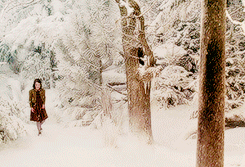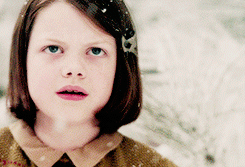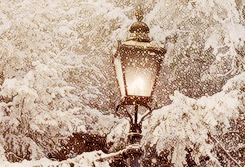In the end, Peter has always loved Narnia more than he could ever love Aslan. It is a simple, undeniable truth of the High King’s soul, woven into the fabric of his very being with untearable thread.
This is not to say that he does not feel love for the Great Lion. He loves him dearly, remembers fondly the feeling of warmth and bravery the mere mention of Aslan had brought to him that very first day. He loves him for the gifts he has been given, and therein lies the truth. Peter’s love for Aslan inevitably returns to what Aslan has given to Peter. The High King is not ashamed of this. Every musing on the Lion returns to the gifts of a family, a kingdom, and nothing more.
His love for Aslan can never be as steadfast and endless as Lucy’s faith, as bright as blossoms in spring. It can never measure up to the gratitude and relief forever kindling in Edmund’s heart for a sacrifice made out of love. Peter doesn’t fault them for their love for Aslan, for their unwavering faith and trust. He has always held admiration for the way their hearts don’t seem to struggle with the task of loving both Narnia and Aslan. Even Susan’s quieter, more reserved love outshines his so easily, not unlike the sun under which she was crowned. Peter’s love for Aslan pales in comparison to what he sees whenever his siblings speak of the Lion, is quickly cast into shadow in the light of their devotion.
His heart has always refused to split his love as much as his siblings manage. It can only ever find two paths, intertwined and crossed over as they are. Peter loves his family, and he loves Narnia. He loves them fiercely, loves them with every beat of his heart, loves them to the point of pain. He loves them with blood and tears spilt upon eager soil, falls upon enemies, declares victory in the name of Narnia and her sovereigns. He loves them with his sword in his hand, his crown on his head and fire in his heart.
Peter has always loved Narnia more than the Lion, and he finds peace within this fact. He doesn’t linger upon doubts, doesn’t compare it to his siblings. He has a family and country to look after, people and borders to defend, a sword in need of wielding and an army waiting on his command. There is no use in fearing that which he cannot help.
Aslan must have known that Peter’s love could never extend beyond those in his care. He supposes Aslan has always seen the depths and limits of Peter’s heart and perhaps chose him for this very reason. After all, is it not what Aslan asked of him, standing upon a hill all those years ago? How can the Great Lion condemn someone so utterly devoted to what was entrusted to him? Aslan has given him a throne, a kingdom to love, people to care for. Who can fault Peter for taking those gifts, for holding onto them with bloodied hands and ragged breaths, for loving them with everything he can ever hope to give?
Narnia is loved deeply by her High King, loved with every breath she takes through his lungs, loved with every foe that falls to his might in defence of her. She holds on tight; blood-soaked, alive and humming with joy. Her High King offers a love greater than his soul to her and her people. She takes it eagerly and loves him viciously in return.
(written for @narnianetwork voyage 16: favorite characters - peter pevensie)
Category: the chronicles of narnia
nothinggold13:A criminally underrated line of foreshadowing in The Lion, the Witch, and the Wardrobe…
A criminally underrated line of foreshadowing in The Lion, the Witch, and the Wardrobe is this:
“The coats were rather too big for them so that they came down to their heels and looked more like royal robes than coats when they had put them on.”
I just love that image. Right at the start, Lewis tells us that these four children look like kings and queens, and I think too often we just skip over it.
“Most of us, I suppose, have a secret country but for most of us it is only an imaginary country….”
- C.S. Lewis, The Voyage of the Dawn Treader.
nastylittlenerd: ‘The electric street-lamp may indeed be…






‘The electric street-lamp may indeed be ignored, simply because it is so insignificant and transient. Fairy-stories, at any rate, have many more permanent and fundamental things to talk about.‘ (J.R.R. Tolkien in On Fairy-Stories)
‘In about ten minutes she reached it and found it was a lamp-post. As she stood looking at it, wondering why there was a lamp-post in the middle of a wood and wondering what to do next…’ (C.S. Lewis, The Lion, the Witch, and the Wardrobe)
aka ‘am I petty enough to write a lamp-post into my story just because my friend said it’s a ‘no-no’ in fantasy? Why yes, yes I am.’